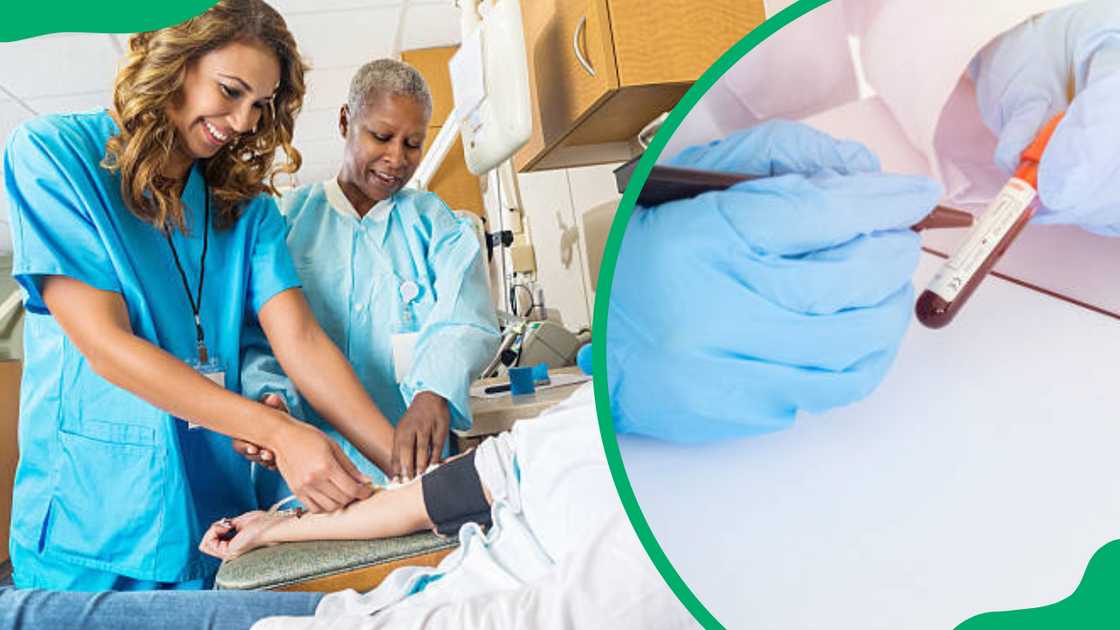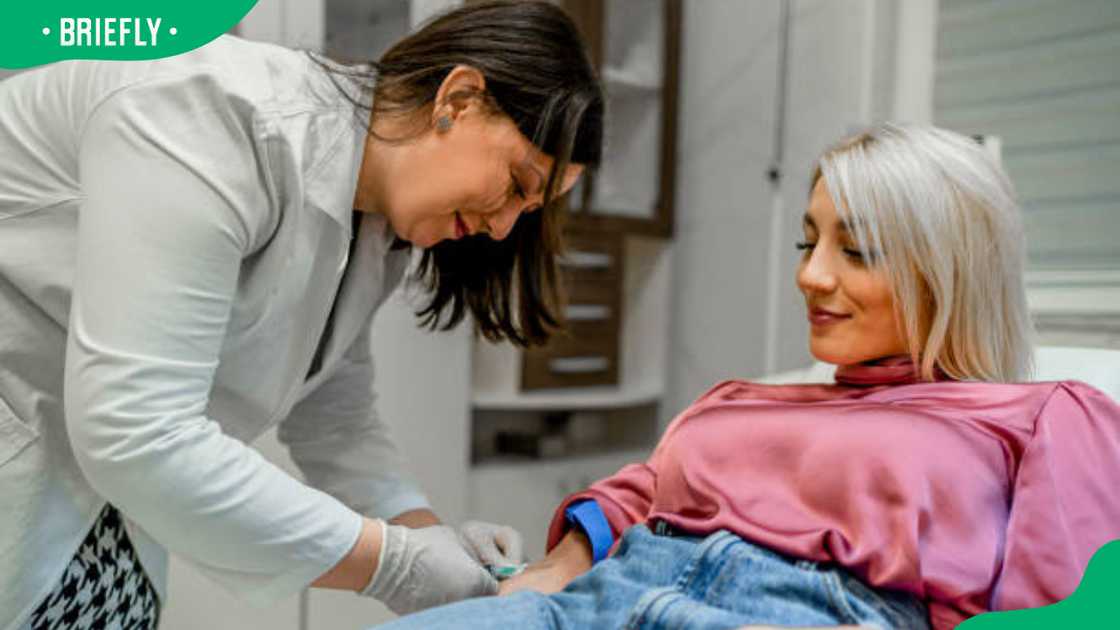Phlebotomist requirements, duties, and salary expectations in South Africa
Understanding phlebotomist requirements is the first step toward an exciting healthcare career. Phlebotomy blends patient care with technical skill in blood specimen collection. With increasing demand, this role offers job security and rewarding opportunities.

Source: Getty Images
TABLE OF CONTENTS
Key takeaways
- A phlebotomy course without a matric certificate is impossible in South Africa, as matric and certain subject passes are mandatory.
- The phlebotomist certification typically takes two years via a learnership program involving theoretical and practical training.
- Monthly salaries vary, with estimates ranging from R10,698 to R16,690 depending on experience and location.
- Phlebotomists primary role is drawing blood and other bodily fluids for laboratory testing.
- Some of the subjects needed to become a phlebotomist include mathematics and life sciences.
Phlebotomist requirements and duties
Becoming a phlebotomist in South Africa involves specific educational paths, certification requirements, and professional duties. Here is a look at some of the requirements, duties, and salary expectations of a phlebotomist in South Africa:

Source: Getty Images
Minimum qualifications and subjects needed to become a phlebotomist
Phlebotomy course requirements typically include a grade 12 certificate or its equivalent. Other minimum credits required include:
- Fundamental component: 62 credits.
- Core component: 60 credits.
- Elective component: Minimum of 13 credits, 8 of the credits should be at level 4, while the rest should be either at level 4 or level 3.
- Mathematical literacy at or equivalent to NQF level 3 / the value of 16 credits.
- 1" language at or equivalent to NQF level 3/the value of 20 credits.
- 2nd language at or equivalent to NQF level 2 /the value of 20 credits.
- FET certification and registration with the Health Professions Council of South Africa (HPCSA).
How long does it take to acquire a phlebotomist certification in South Africa?
In South Africa, acquiring a phlebotomist certification typically takes about two years. The learner undergos a Phlebotomy Technician Learnership program, which combines structured theoretical learning and practical workplace experience. After passing a board exam, one is registered with the Health Professions Council of South Africa (HPCSA).
Can you study phlebotomy without matric?
In South Africa, you cannot study phlebotomy without a matric certificate. This is because a matric is a standard minimum requirement to study phlebotomy technician learnerships and courses, which also require specific passes in certain subjects.

Source: Getty Images
Phlebotomists' earnings in South Africa
The salary of phlebotomists varies depending on the experience, location and company. According to Indeed, a phlebotomist earns an average base monthly salary of R10,698. However, Salary Expert estimates the average phlebotomist salary to be approximately R16,690 per month.
Duties and responsibilities of a phlebotomist
Phlebotomists are qualified healthcare providers who draw blood from patients for medical procedures. Some of the key duties of a phlebotomist include:
- Collecting blood samples from patients.
- Labelling, storing, and transporting blood specimens correctly to the laboratory for testing.
- Preparing and sanitising the work area and supplies.
- Identifying the correct patient and ensuring proper patient identification before the procedure.
- Communicating with and educating patients about the blood collection process to make it comfortable and understandable.
- Maintaining accurate records of collected samples and patient information.
- Adhering to safety protocols regarding infection control, disposal of contaminated supplies, and confidentiality.
- Liaising with nursing and medical staff to coordinate investigations and report patient conditions.
- Occasionally, they assist with training new staff or helping in community outreach programs.

Source: Getty Images
Trivia
- Some of the accredited colleges in South Africa offering phlebotomy courses include the Health Science academy, Ampath, and PathCare Academy.
- Phlebotomy has been officially recognized in South Africa for about 15 years.
- Modern phlebotomists use minimally invasive techniques to improve patient comfort.
- Phlebotomists work closely under the supervision of professional nurses, often referring high-risk patients for further assessment.
Final word
Meeting phlebotomist requirements opens doors to a vital healthcare profession. Proper training and certification pave the way for professional growth and stability. This role offers meaningful work while supporting medical diagnostics.
DISCLAIMER: This article is for general informational purposes only and does not address individual circumstances. It is not a substitute for professional advice or help and should not be relied on to make decisions. Any action you take based on the information presented in this article is strictly at your own risk and responsibility.
READ MORE: Types of nurses in South Africa in order of ranks and their salaries
Briefly.co.za shared an article on Nurses in South Africa. There are various nursing specialities in South Africa; each nurse has a specific role and scope of practice in providing patients with essential medical care, support, and education.
However, different types of nurses earn different salaries, with nurse anaesthetists earning the highest salaries while nurse educators are the least paid.
Proofreading by Kelly Lippke, copy editor at Briefly.co.za.
Source: Briefly News





